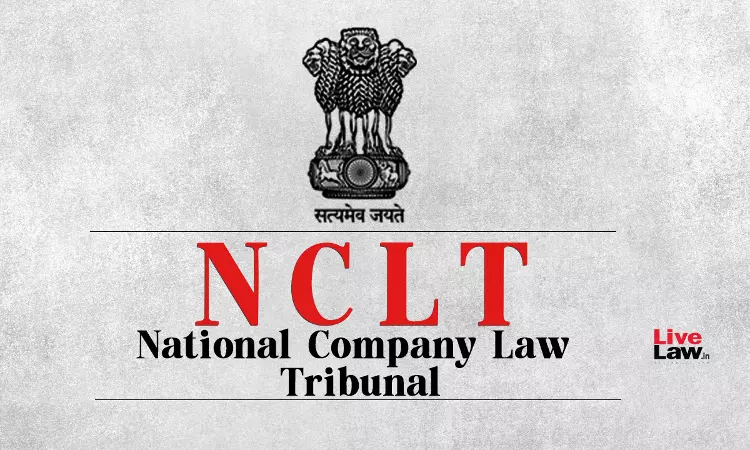Corporate Debtor May Be Permitted To Complete Project Under IRP's Supervision If A Structured Plan Is Proposed: NCLT Indore
Mohd Malik Chauhan
2 Aug 2025 6:20 PM IST
The National Company Law Tribunal (NCLT), Indore Bench of Sh. Shammi Khan (Judicial Member) and Sh. Sanjeev Sharma (Technical Member) has held that while admitting a petition under Section 7 of the IBC filed by homebuyers based on the default committed by the corporate debtor, the corporate debtor can be directed to complete the project under the reverse Corporate...
The National Company Law Tribunal (NCLT), Indore Bench of Sh. Shammi Khan (Judicial Member) and Sh. Sanjeev Sharma (Technical Member) has held that while admitting a petition under Section 7 of the IBC filed by homebuyers based on the default committed by the corporate debtor, the corporate debtor can be directed to complete the project under the reverse Corporate Insolvency Resolution Process (CIRP) model, under the supervision of the Interim Resolution Professional, if a structured and viable plan to complete the project is proposed by the corporate debtor.
The present petition has been filed under section 7 of the Insolvency and Bankruptcy Code, 2016 by SK Dutta along with 19 others financial creditors against the Corporate Debtor seeking initiation of the CIRP.
The Applicants submitted that the corporate debtor defaulted by failing to deliver possession as per agreements despite payments, supporting initiation of corporate insolvency resolution process.
Per contra, the corporate debtor submitted that the present Petition under section 7 of the Insolvency and Bankruptcy Code, 2016 (IBC) is not maintainable as the alleged debt claimed by the Financial Creditors do not fall within the purview of 'financial debt'. Moreover, the Financial Creditors do not fall within the definition of 'Financial Creditor' under section 5(7) of the IBC, 2016 and the alleged claim which is sought to be made cannot be considered as an 'financial debt' within the provision of the Code.
The Tribunal observed that the Applicants have placed on record on builder buyer agreement, payment receipts, ledger accounts and default computations to establish that the amounts paid qualify as financial debt under section 5(8) of the IBC because the amount was advanced with a stipulation to deliver the possession or refund the amount with interest. This satisfies the requirement of commercial effect of borrowing as held by the Supreme Court in Pioneer Urban Land
It held that the corporate debtor's status as a going concern does not preclude admission if debt and default are established. Therefore, the petition is maintainable, and there exists a financial debt in default meeting the statutory requirements.
It further observed that the default in handing over the possession of the flat is a continuing wrong as held by the Supreme Court in Samruddhi Co-op Housing Society Ltd. v. Mumbai Mahalaxmi Construction Pvt. Ltd. which creates a new cause of action. Furthermore, communications from the corporate debtor including e-mails and a promise to complete the construction amount to an acknowledgement under section 18 of the Limitation Act.
The Tribunal further observed that in real estate insolvency, an application under section 7 of the IBC can be admitted where homebuyers are the majority creditors. However, as per the judgment of the NCLAT in Flat Buyers, in reverse CIRP the promoter is given an opportunity to complete the construction under the supervision of the IRP after the admission of section 7 application to avoid liquidation and ensure that the IBC's objectives of value maximisation are achieved.
It further observed that the IA proposes a planned revival plan with the infusion of funds and timeline for completing the project. This arrangement was deemed feasible by the MPCON therefore this arrangement aligns with the objective of the IBC that the solvent debtors with viable proposals should not be dragged into insolvency as held by the Supreme Court in Vidharbha Industries. In the present case, the reverse model is appropriate as held by the NCLAT in Flat Buyers where the application under section 7 of the IBC was disposed of with directions for supervised completion of the project.
The Tribunal further held that cancellation letters are unilateral and based on inflated demands which ignored incomplete status of the project and absence of occupancy and completion certificates thereby violating section 19 of the RERA Act. They also disregarded the delay compensations amount awarded by the RERA which led to the incorrect outstanding amounts. Emails dated 21.02.2024 link payment to withdrawal of legal proceedings disclose a mala fide attempt to compel abandonment of the petition which is clearly against the IBC's objectives. The corporate debtor lacks authority to cancel the allotments or create third party rights after expiry of extension given by the RERA.
It held that “the cancellation letters are set aside as ultra vires and coercive, and the corporate debtor is restrained from terminating allotments, imposing penal interest, or creating third-party rights or interests in the units, to preserve the status quo during the corporate insolvency resolution process.”
Accordingly, the present petition was admitted and the prayer of the Corporate Debtor to complete the project under the supervision of the IRP in reverse CIRP was allowed.
Case Title: S.K. Dutta (Swapan Kumar Dutta) Vs. Global Mega Ventures Private Limited
Case Number: CP (IB) No.71/7/MP/2020 With IA No. 199/MP/2022, IA No. 45/MP/2024, and IA No. 271/MP/2024
Order Date: 28/07/2025
For the Applicants/FCs : Mr. Mohit Kr. Auluck, Advocate.
For the Respondent/CD : Mr. Saurabh Panedy, Advocate a.w. Mr. Akshat Aggarwal, Advocate.



